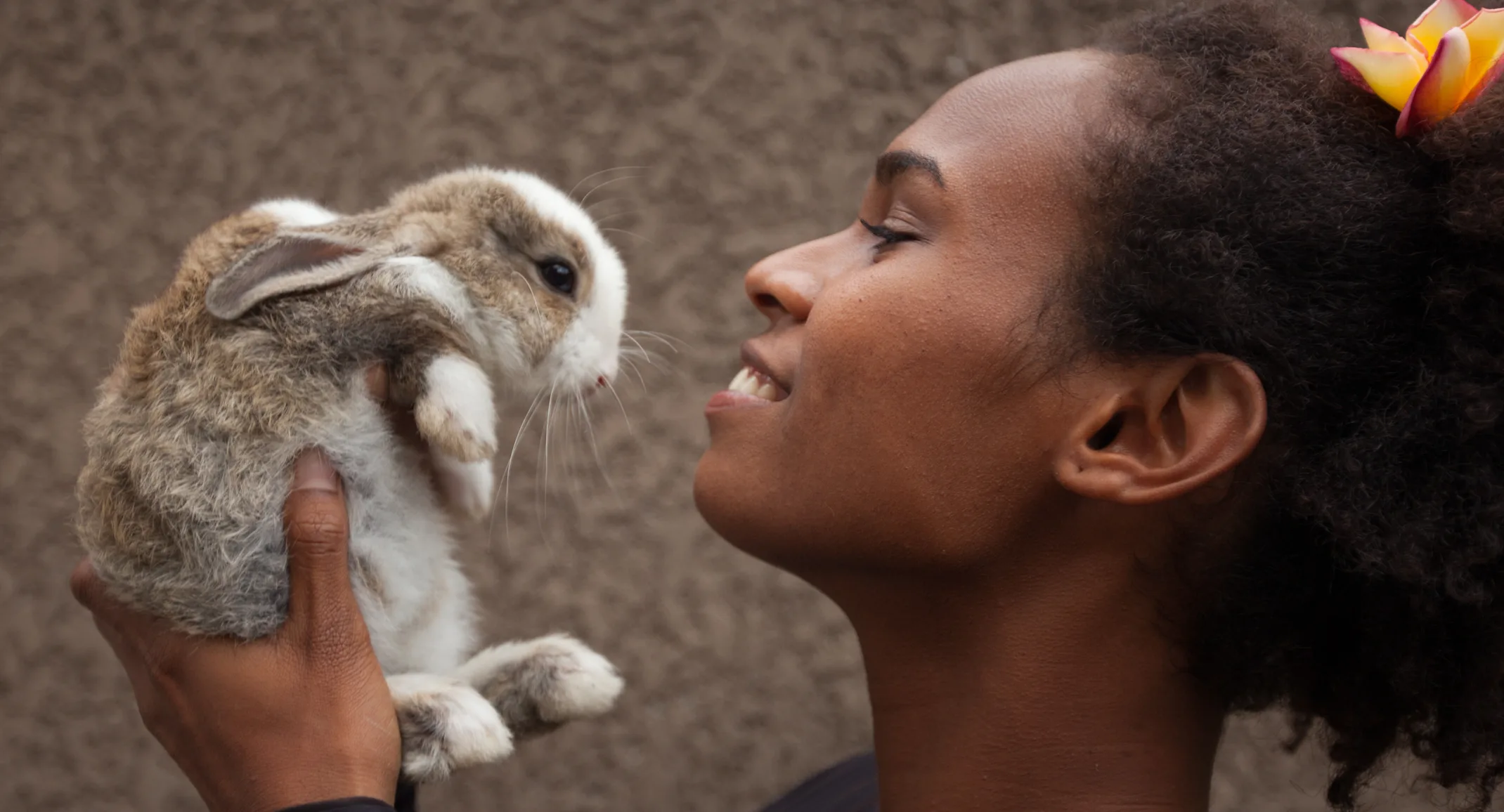What Should My Rabbit Eat?
Exotic Animals

Bunnies are fragile creatures with very complex digestive systems as well as very sensitive stomachs.
The wrong food or even introducing foods too quickly can cause them to become sick. This begs the question: what should I feed my rabbit?
Bunny rabbits should eat a balanced diet consisting of mostly hay and grass, with pellets, fruits, and vegetables as well. However, not all fruits and vegetables are exactly safe for bunnies.
Read our article to learn more about what your bunny rabbit should eat.
FRUITS AND VEGETABLES
Our bunny friends are herbivores. They graze constantly on plants, often up to 6-8 hours a day. This means food should be available to them at all times.
Fruits should only be given once or twice a week as snacks and in small quantities, as they are only a small part of a rabbit’s diet. Be mindful of which ones you choose, however. Just like how chocolate is poisonous to dogs, certain fruits, as well as veggies, can be poisonous to rabbits.
A few fruit snacks that are safe for rabbits are apples, strawberries, bananas, mangoes, kiwis, pineapples, and peaches. Stay away from avocados, they contain a toxin that is deadly. Veggies, on the other hand, can be fed daily as long as they don’t experience diarrhea. It is the second most important part of their diet.
Some safe veggies to feed your bunny include bell peppers, basil, carrots, spinach, mint, kale, and celery. Even romaine lettuce is a good snack. You should not feed your rabbit mushrooms, potatoes, kidney beans, cauliflower, and rhubarb. Other foods that you should avoid feeding your rabbit include cereal, peas, bread, sweets, chocolate, and grains.
PELLETS
Pellets, sometimes called nuggets, are the third most important part of a rabbit’s diet. Young bunnies should stick to alfalfa pellets while adult bunnies stay with timothy hay pellets. Overconsumption of pellets can cause your bunny to gain weight and get health problems, so it is important not to overfeed them.
An average-sized rabbit only needs one-quarter cup daily. If your bunny is under five pounds, they should get one-eighth of a cup. If you feed them fewer pellets, compensate by feeding them more veggies.
It’s recommended not to buy pellets that have corn, seeds, or nuts in them as you can’t be certain if any are toxic for your furry friend. Make sure that the pellets you buy are at least 18% fiber, and avoid stale pellets as your bunny will likely not eat them.
HAY AND GRASS
Besides yummy snacks and dry pellets, a rabbit’s diet should be 80-90 percent hay, grass, and water. Hay and grass are the most important thing to a bunny as it keeps their digestive system working properly due to the high amount of fiber.
Fiber helps bunnies from getting GI stasis, a medical condition that can be deadly as it can compact their digestive system. Fresh, high-quality grass hay is what you want to look for when feeding your bunny rabbits. Be sure not to use those lawnmower clippings left out on your lawn as cheap hay because it can make your rabbit sick.
Hays such as timothy, oat, orchard, or brome are better choices. Alfalfa hay shouldn’t be fed to adult bunnies, as it is way too rich in protein and high in calcium. However, alfalfa hay is what a young bunny rabbit’s diet should focus on, since it is so high in calories. Around 7 months of age, you should change your rabbit’s diet by slowly introducing other types of hay.
Hay has other benefits, as it helps wear down a bunny’s teeth. Similar to squirrels and rodents, a bunny rabbit’s teeth continue to grow for their entire lifespan. A diet high in hay can keep them from developing molar spurs, which is when their teeth become hook-like. Molar spurs can make it painful for your bunny rabbit to eat, so be sure to feed them lots of hay to avoid this dental condition!
DROPPINGS
The last thing that can be unsettling at first is that rabbits like to eat something called night droppings, or cecotropes. Bunny rabbits usually eat these droppings late night, and they are actually their feces. Have no worry, as this is normal behavior!
Cecotropes look different from the usual droppings you can find in their litter box. These are smaller, softer, and might even smell sweet. These droppings provide extra nutrients and are essential to the health of your rabbit.
CONCLUSION
A rabbit’s diet is complex and could take weeks to truly figure out the balance of each part. Any slight change can cause gas or other digestive issues which can possibly be deadly, so a schedule is definitely recommended.
Remember that a majority of your bunny rabbit’s diet should contain high-quality hay, with pellets and select fruits and vegetables making up the rest of their diet. Furthermore, monitoring your rabbit’s diet and even digestive cycle is good practice to make sure you can catch any changes before they get too serious. At the end of each day, it’s worth it to see your furry little friend happy, healthy, and comfortable.
Do you have any questions regarding your bunny rabbit’s diet in the Hingham, MA area? Old Derby Animal Hospital is available at (781) 749-2800, or you can book an appointment here!
